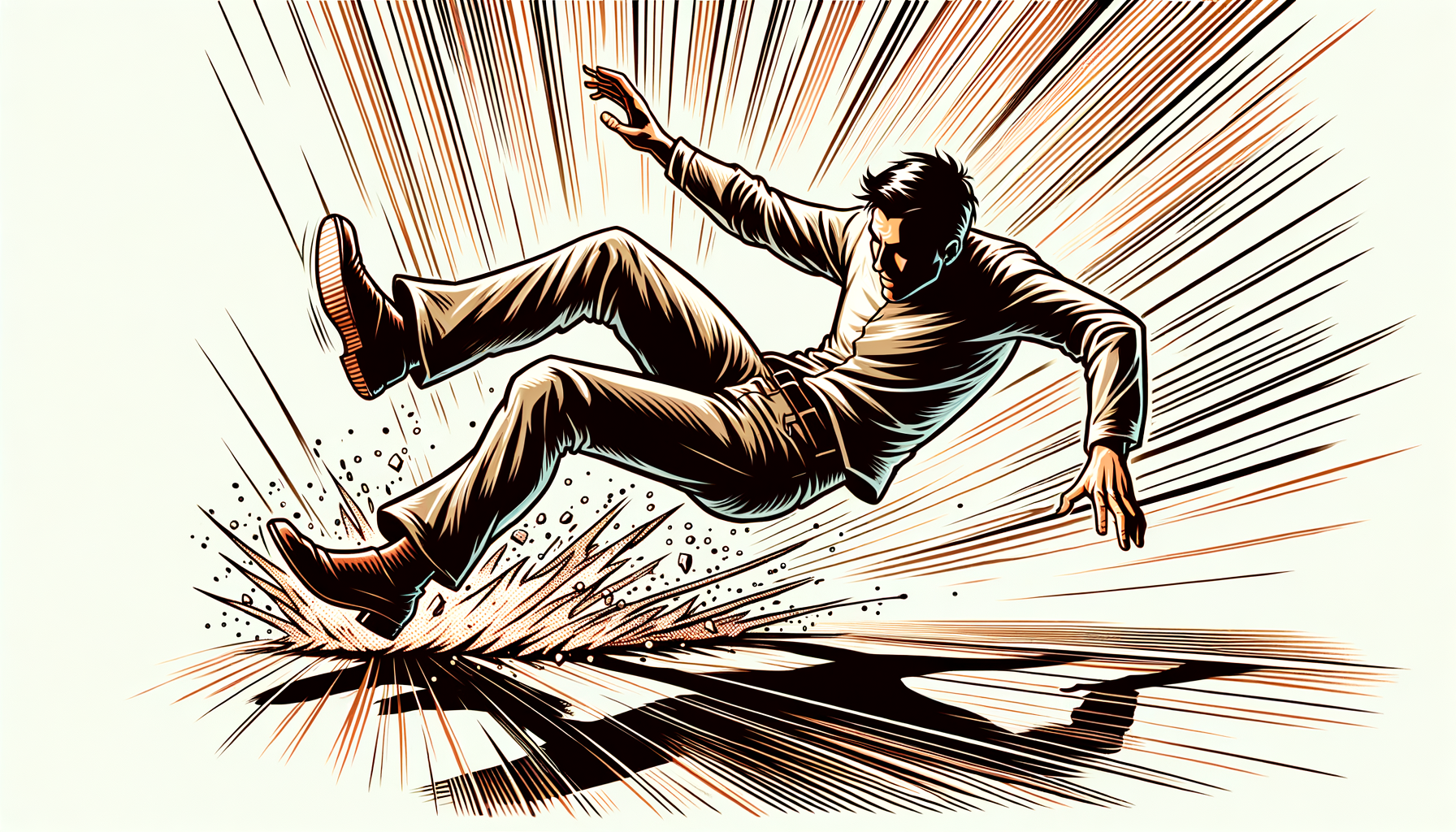It’s a weird feeling, failing publicly. One second you’re riding high, thinking you’ve got life all figured out. The next, you’re metaphorically face-planting so hard it leaves a dent in your ego. My first big failure hit when I decided to open a poetry night at my parents’ café in Kitsilano. Cue the loop of awkward laughter, cringe-worthy spoken word, and an epically short-lived dream.
But hey, failure makes for a great story, and this one shaped a lot of who I am today—both in realizing what resilience looks like and how to face-plant a little more gracefully. So, let me take you back to my personal Hall of Shame moment and what it eventually taught me about showing up for myself, even when things go sideways.
The Vision: Grande Dreams, Decaf Reality
I was fresh out of university, pumped with the kind of energy only someone armed with a creative writing degree and zero clue about real life could muster. I had this idea that I’d turn my parents’ cozy café into a monthly hub for local poets. Picture this: moody lighting, enchanted locals snapping their fingers, espresso machines hissing like punctuation. I was basically planning to recreate “Dead Poets Society,” with lattes instead of candlelit desks.
I printed hand-drawn flyers, begged friends to come, and dutifully rehearsed my opening monologue at least five times in front of my cat, Hemingway (named accordingly). By the time the first night rolled around, I was a vibrating cocktail of caffeine and high expectations.
The Crash: Words Were Spilled, Tears Nearly Followed
From the start, things spiraled south faster than you can say “iambic pentameter.” Only seven people showed up—half of them relatives, and one guy who confessed he just wanted to use the café's Wi-Fi.
I opened the night by reading my own poem first. Big mistake. My hands shook so hard I could’ve mixed up a half-decent iced shake while reciting love stanzas that sounded a lot less "Keats" and a lot more "awkward Pinterest quote." Then came the headliner I’d miraculously convinced to attend (a Vancouver slam legend). He showed up, saw the sad attendance, and bailed 30 minutes later with an elaborate excuse about a cousin’s emergency…or maybe he just couldn’t find parking.
We limped through the evening. My best friend Naomi jumped in with some experimental haikus, bless her heart, and Hemingway (the cat) made an impromptu appearance when my dad tried sneaking bean orders in behind the bar. The ambiance? Unintentional farce—with undertones of disappointment.
Needless to say, I scrapped the idea of future poetry nights—forever.
Reflection: What Really “Failed”
For weeks, I stewed over the catastrophe, replaying the awful moments like a bad Netflix rerun. I thought I’d failed because the night flopped. Public failure feels magnified because we think it’s the proof everyone else needs to confirm our worst fears about ourselves. Are we untalented? Unworthy? Just—ugh, embarrassing?
What I hadn’t realized yet was this: The failure wasn’t the event itself, but my obsession with the "perfect debut." I wanted something memorable, polished, and—in hindsight—untouchably unrealistic. The bar I set for myself was perched somewhere between Mount Everest and the moon. To fall short wasn’t surprising—it was almost guaranteed.
Sometimes, we need our lofty expectations to come crashing down to remind us of what’s actually important—effort, connection, and not being afraid to fail.
Lessons from the Face-Plant
I didn’t come away from my poetry debacle without learning a few things. Here’s how failing publicly became one of my greatest teachers:
1. Making Mistakes is a Universal Experience
If you’re feeling like a flop, welcome to the human club. Reframe failure as a badge of courage—it means you tried. No one remembers their worst days without also recalling how they got back up.
2. Perfection is Overrated (and Kind of Boring)
This is biggest lesson I learned: Perfection is a trap. It shuts down experimentation and leaves zero room for spontaneity. The truth is, most great ideas or relationships take a few rounds of trial and error to get right. Plus, some of life’s best stories come from moments that were hilariously imperfect.
3. The Right People Stick With You
Naomi stayed for the whole mess of it, even chiming in when things got weird. The same goes for relationships—whether platonic, romantic, or professional. The people who truly lift your spirit don’t mind messy beginnings or shaky hands. Remember to celebrate them, and maybe throw in a thank-you iced coffee.
4. You’ll Do Better Next Time
Resilience is like building your improv muscle: It doesn’t grow unless you’re put on-stage and forced to adapt. Every time you fall short, you acquire tools or insight to help you whether it’s choosing better contexts—or just being able to laugh at it afterward.
Fast-Forward to Resilience
I flinched every time I heard the word “poetry” for at least two years after that night (a challenge when your parents literally own the venue). But something shifted. Slowly, I realized my failure wasn’t fatal—it might’ve even planted the seed for personal growth.
Years later, my writing collection debuted. One of its stories, hilariously enough, spotlighted a creative-writing enthusiast who mortifies herself in public by sharing cringe-worthy work (art imitates life, am I right?). It received lovely reviews—not because it was perfect, but because it struck a chord that was human and familiar. Readers appreciated its honesty—and having endured a mortifying night made that possible.
Rewriting Your Own Flops
We all have some version of that poetry night—maybe it's a romance that fizzled before it got off the ground, a career risk that didn’t pan out, or an argument we botched worse than a bad punchline. But here’s the thing: Failure is rarely the end. It’s an interlude. A necessary hiccup on the way to future success.
Next time you find yourself licking the wounds of a “public flop,” take a deep breath and remember these takeaways:
- Own It: Laugh, cry, journal—do what you need to process! Validation doesn’t come from hiding failure but owning it.
- Mine It: There’s always something to learn from discomfort or awkward missteps. What surprised you about yourself? Would you do something differently?
- Move On, With Kindness: The person who wins isn’t the one who avoids mistakes but the one who grows from them without becoming their own worst critic.
Closing Thoughts: Turning Flops Into Flourishes
Today, I’m grateful for that painfully awkward poetry night. It taught me to take swings at the proverbial piñatas of life, knowing full well that sometimes you’ll miss. Other times, you'll hit hard, and friend, those moments? They’re sweeter than you could’ve ever imagined.
From personal blunders to epic fails, we all deserve to show up, try again, and rewrite the stories we tell ourselves about stumbling. Because ultimately, every great comeback starts with a good failure.




















